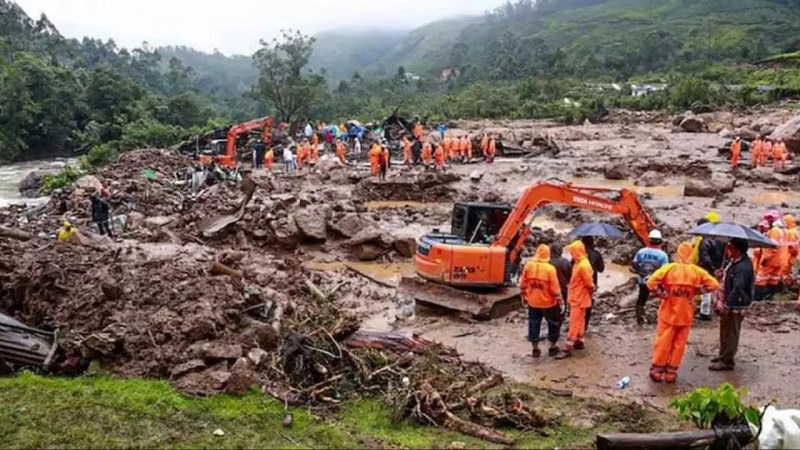
New Delhi: The landslides that killed hundreds of people in Kerala's Wayanad were triggered by a burst of rainfall that was made about 10 per cent heavier by human-caused climate change, a study has found.
Once in a-50-year event
The study by World Weather Attribution (WWA), an international group of researchers, found that the excessive rainfall in the early hours of July 30 that triggered the landslides was a "once in a-50-year event".
The study highlights the need for rigorous assessments of landslide risk and improved early warning in hillside regions of northern Kerala to prevent repeat landslide disasters.
The study was conducted by 24 researchers
The study was conducted by 24 researchers as part of the World Weather Attribution group, including scientists from universities and meteorological agencies in India, Malaysia, the United States, Sweden, the Netherlands, and the United Kingdom.
"The available climate models indicate a 10 per cent increase in intensity. Under a future warming scenario where the global temperature is two degrees Celsius higher than pre-industrial levels, climate models predict even heavier 1-day rainfall events, with a further expected increase of about 4 per cent in rainfall intensity," the study said.
The study noted that one-day bursts of monsoon rainfall will continue to become even heavier, risking even deadlier landslides, until the world replaces fossil fuels with renewable sources of energy.
"Minimising deforestation and quarrying, while improving early warning and evacuation systems will help protect people in northern Kerala from future landslides and floods," the study suggested.
The study highlights that single-day heavy rainfall events in Kerala are becoming more common, a shift attributed to climate change. Previously rare, such downpours are now expected to occur roughly once every 50 years due to 1.3°C of global warming. Additionally, the research points to factors like quarrying for building materials and a 62 per cent decrease in forest cover in Wayanad from 1950 to 2018, which have heightened the area's vulnerability to landslides during intense rainfall.
Mariam Zachariah, Researcher at the Grantham Institute - Climate Change and the Environment, Imperial College London, said, "The landslide">Wayanad landslides is another catastrophic example of climate change playing out in real-time. The extreme burst of rain that dislodged an entire hillside and buried hundreds of people was intensified by human-caused warming."
The findings are in line with a large scientific body of evidence on extreme rainfall around the world, the scientists say - a warmer atmosphere, heated by fossil fuel emissions, can hold more moisture, resulting in heavier downpours.
The study highlights a range of factors that turned the landslide into a disaster.
The soils in the hilly Wayanad district are among the loosest and most erodible in Kerala, with high risk of landslides during the monsoon season. More stringent assessments of landslides, restricting construction in hillside areas and minimising deforestation and quarrying are needed to avoid similar disasters in the future, the researchers say.
The rainfall was well forecast and some villages were evacuated. However, the extreme number of casualties indicates that warnings failed to reach many people and did not specifically outline what impacts could be expected in particular regions, the researchers say.
Maja Vahlberg, Climate risk consultant at Red Cross Red Crescent Climate Centre, said: "As well as moving away from fossil fuels, the world needs to adapt to extreme weather. The rainfall that triggered the landslides occurred in a region of Wayanad that has the highest landslide risk in the state." (ANI)







